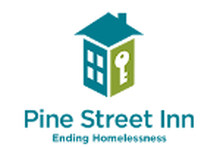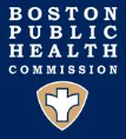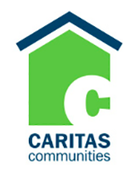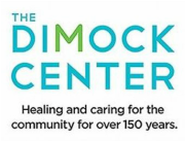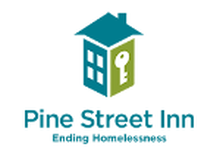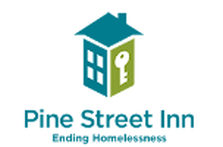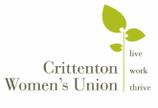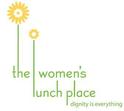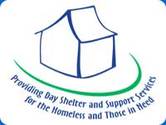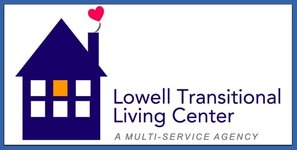Current and Past Service Partners
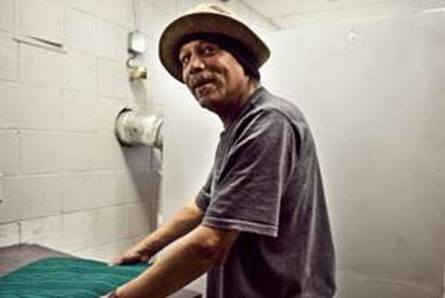
Shelter Music Boston provides 60-70 live concerts and monthly virtual concert recordings each year to organizations dedicated to serving men, women, and children experiencing homelessness, housing insecurity, or in substance misuse recovery throughout Greater Boston.
Current research documents the positive effects of music on physical and mental health and supports its use as a complementary tool in social service delivery. For someone experiencing homelessness or in recovery, an interactive, respectful concert delivering the therapeutic power of classical music can provide hope, a sense of self-worth, and renewed energy to address the challenges of homelessness and recovery.
Visit our Children's Program page to see our Family Shelter Partners.
Current research documents the positive effects of music on physical and mental health and supports its use as a complementary tool in social service delivery. For someone experiencing homelessness or in recovery, an interactive, respectful concert delivering the therapeutic power of classical music can provide hope, a sense of self-worth, and renewed energy to address the challenges of homelessness and recovery.
Visit our Children's Program page to see our Family Shelter Partners.
"For my friend who suffers with substance abuse, the gift of classical music is nourishing to her soul. Thank you."
- audience member at Pine Street Women's Inn
- audience member at Pine Street Women's Inn
Adult Partner Sites
SMB musicians perform monthly live concerts at:
|
Homeowner's Rehab Inc., Cambridge MA HRI creates and preserves affordable homes and housing opportunities for all people, regardless of age, race, income, or identity. It provides comprehensive resident services and programming and develops innovative, replicable forms of affordable housing in order to provide the greatest range of housing options for low- and moderate-income households. Pine Street Inn - Shattuck Stabilization Center, Boston MA Stabilization is a 50 bed post-detox program providing intensive treatment and support for homeless men with histories of chronic substance abuse. Stabilization assists adult males (21 years or older) with successful recovery and reconnection to the community. The goal is to provide short-term clinical and support services, maximizing the potential for successful recovery, and providing the client with an understanding and acceptance of the need for continued treatment to prevent relapse. The program has the capacity to serve individuals who are dually diagnosed with a mental illness, as well as those living with HIV/AIDS or other chronic medical conditions. Southampton Street Shelter, Boston MA The newly expanded Southampton Street Shelter provides approximately 400 beds for homeless men aged 18 and over. Near to Boston Medical Center and run by the Boston Public Health Commission, it also offers a clinic for mental and physical health as well as case management for its residents. Woods Mullen Shelter, Boston MA Woods Mullen is a women's only shelter in South Boston with 200 beds available 365 days a year, 24/7, for women aged 18 and over. Like the Southampton Street Shelter, it is run by the Boston Public Health Commission and offers meals, emergency clothing, connections to housing resources, and case management. CASPAR (Cambridge and Somerville Programs for Addiction and Recovery), Cambridge MA Now part of Bay Cove Human Services, CASPAR provides community-based services for people with substance use disorders. CASPAR’s Emergency Services Center (ESC) shelter for homeless men and women provides life-saving services to 107 people nightly and over 1,000 unduplicated clients annually. It is one of two shelters in Massachusetts that accept homeless people who are using drugs and alcohol. Guests receive medical and mental health care, nutritional food, personal hygiene supplies, clean clothes, counseling, case management, and employment, housing, and treatment referrals in an environment that is welcoming and safe. |
As of May 2020 Shelter Music Boston has created virtual partnerships with the organizations listed directly below, who receive our monthly virtual concert recording
"This is the first concert I’ve ever heard in my entire life. The sound made me travel to different places.
Thanks for bringing joy to my soul.”
- listener at Pine Street Inn - Shattuck Shelter
Thanks for bringing joy to my soul.”
- listener at Pine Street Inn - Shattuck Shelter
Live concerts have been performed at these locations
|
Bedford Veterans Quarters, Bedford MA
As part of Caritas Communities, Bedford Veterans Quarters is located on the VA hospital campus and provides homeless and low-income veterans of the US armed services with housing facilities and services to meet their physical, social, and psychological needs. It is an independent living residence with 56 single occupancy rooms for permanent residence. |
|
Recognized nationally as a model for the delivery of comprehensive health and human services, the Dimock Center provides the residents of Boston with high quality, low cost health care and human services, providing a mix of on and off campus residential programs that provide a structured, safe and committed environment critical to recovery.
|
|
The Women’s Inn of Pine Street Inn is New England’s largest emergency shelter for women, providing a safe place to sleep for 120 women each night, as well as recovery programs, health care and housing. Counselors create an atmosphere of welcome and respect while providing critical services that help guests reclaim their lives.
|
|
Opened in 1983 by Governor Michael Dukakis, the Pine Street Inn - Shattuck Shelter offers year-round overnight emergency shelter and support for 150 homeless men each night. Guests receive two hot meals, showers, clothing, a clean bed, and support from counselors and nursing staff. Pine Street Inn - Shattuck Shelter also provides assistance for guests who are struggling with addiction, legal, financial, mental health and physical issues.
|
|
Collaborating with a group of physicians from Massachusetts General Hospital, Bridge Over Troubled Waters develops innovative programs and practices to reach the most vulnerable, high-risk youth and provide the age-appropriate continuum of care. It remains a national model for youth development services which are effective in helping the most troubled and vulnerable homeless youth to turn their lives around.
|
|
Lifebridge’s mission is to end the crisis of homelessness, one person at a time, and to provide housing with supportive services, to encourage personal and income development, and stability in physical and mental health. To achieve these ambitious goals, Lifebridge delivers a suite of essential services on the Seeds of Hope Campus in Salem, MA.
|
|
Rosie's Place was founded in 1974 as the first women’s shelter in the United States. Their mission is to provide a safe and nurturing environment that helps poor and homeless women maintain dignity, seek opportunity and find security. Today, Rosie’s Place not only provides meals and shelter but also creates answers for 12,000 women a year through wide-ranging support, housing and education services.
|
|
Since 1985, the mission of Boston Health Care for the Homeless Program has remained the same: to provide or assure access to the highest quality health care for all homeless men, women and children in the greater Boston area. Over 12,000 homeless men, women, and children are cared for by BHCHP each year.
|
|
Hope House Addiction Services (Hope House) is the oldest, and now among the largest residential treatment programs in Massachusetts for adults with substance use disorder. Hope House was informally founded in 1956 by the late Jack Donahue, who began by taking up to three recovering alcoholics at a time into his apartment in the South End of Boston and providing them with support and shelter.
|
|
Women’s Lunch Place is a safe, welcoming day community for all self-identified women who are experiencing homelessness or poverty. Women’s Lunch Place strives to meet guests’ most basic and immediate needs while coordinating and delivering critical support services designed to help women achieve greater stability and self-sufficiency whenever possible.
The Kitty Dukakis Treatment Center for Women, overseen by hopeFound, was a 32-bed center at the Lemuel Shattuck Hospital. Between 2007 and 2012 the center served approximately 300 women a year who had gone through detox and were in the early stages of recovering from addiction. The Kitty Dukakis Treatment Center for Women closed in 2012; hopeFound merged with Pine Street Inn. The Community Day Center of Waltham began in 2001 when a group of homeless individuals, community activists, and local church leaders identified a critical gap in services for the homeless in Waltham. Between noon and 5:00 p.m. the options for safe, productive places for homeless individuals to stay were extremely limited. The group worked together for two years; CDC opened its doors in September 2003 and has averaged approximately 50 guests daily, providing a multitude of services for a population in need. Older adults often need extra support to remain independent in their homes and communities. That’s why Elder Service Plan is dedicated to serving their needs. Their mission is to provide a comprehensive system of care that maintains the health, dignity, and independence of their members.
The Lowell Transitional Living Center is the largest homeless shelter and support organization north of Boston with 90 beds and 70 emergency beds. The center provides shelter, food, services and support for the chronically homeless and those left homeless by crisis—job loss, illness, fire or other disaster. LTLC is committed to helping clients make the transition to stable, permanent housing.
|
|
FOLLOW US
© COPYRIGHT 2024. ALL RIGHTS RESERVED.
|


